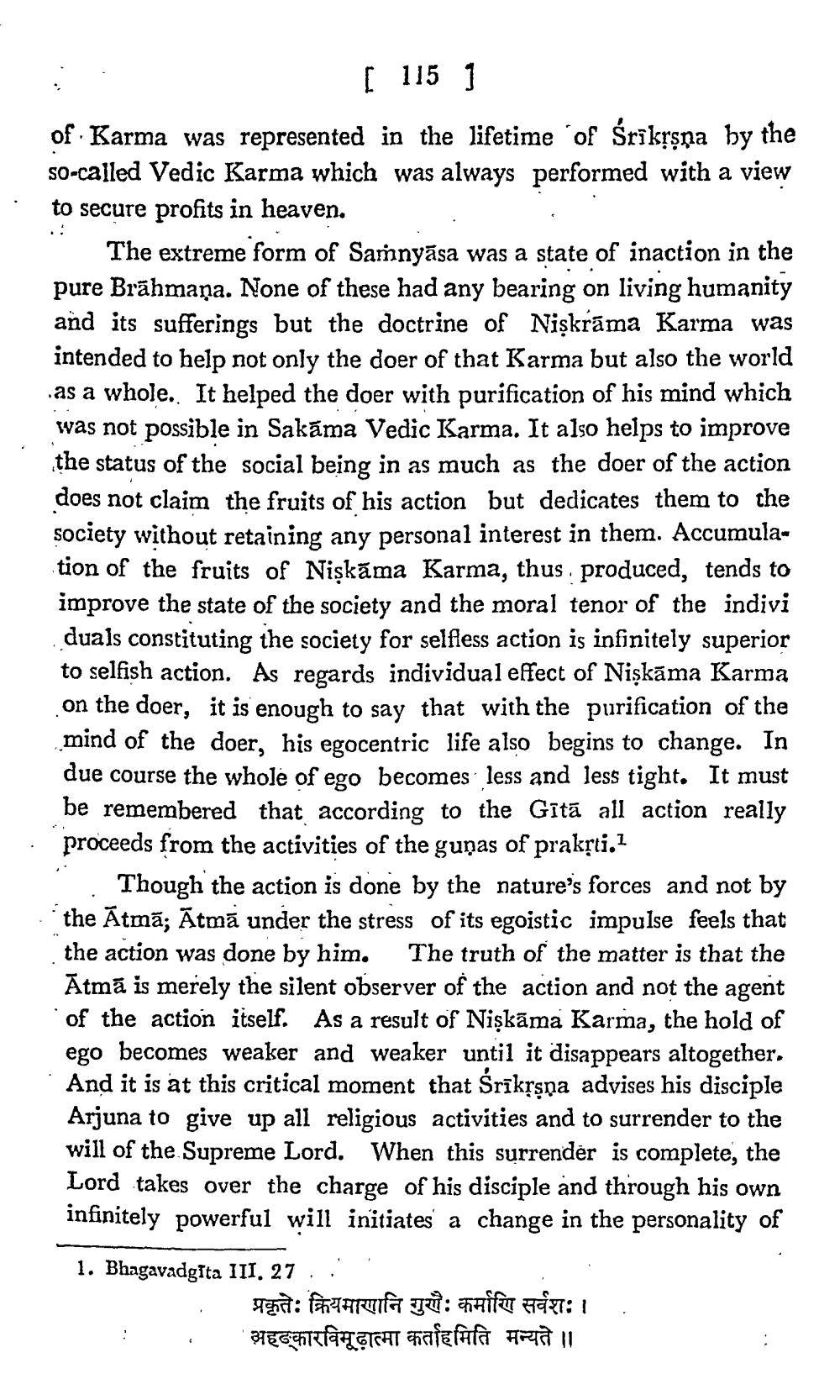________________
[ 115 1 of Karma was represented in the lifetime of Śrīkışņa by the so-called Vedic Karma which was always performed with a view to secure profits in heaven.
The extreme form of Samnyāsa was a state of inaction in the pure Brāhmaṇa. None of these had any bearing on living humanity and its sufferings but the doctrine of Niskráma Karma was intended to help not only the doer of that Karma but also the world as a whole. It helped the doer with purification of his mind which was not possible in Sakāma Vedic Karma. It also helps to improve the status of the social being in as much as the doer of the action does not claim the fruits of his action but dedicates them to the society without retaining any personal interest in them. Accumulation of the fruits of Niskāma Karma, thus produced, tends to improve the state of the society and the moral tenor of the indivi duals constituting the society for selfless action is infinitely superior to selfish action. As regards individual effect of Nişkāma Karma on the doer, it is enough to say that with the purification of the mind of the doer, his egocentric life also begins to change. In due course the whole of ego becomes less and less tight. It must be remembered that according to the Gītā all action really proceeds from the activities of the gunas of praksti.l
Though the action is done by the nature's forces and not by the Ātmā; Ātmā under the stress of its egoistic impulse feels that the action was done by him. The truth of the matter is that the Ātmā is merely the silent observer of the action and not the agent of the action itself. As a result of Nişkāma Karma, the hold of ego becomes weaker and weaker until it disappears altogether. And it is at this critical moment that Śrīkļşpa advises his disciple Arjuna to give up all religious activities and to surrender to the will of the Supreme Lord. When this surrender is complete, the Lord takes over the charge of his disciple and through his own infinitely powerful will initiates a change in the personality of 1. Bhagavadgita III. 27
. Tona: feruila yu: mifer Hår: 1. : : 166chtlagosht safefala Hradt II




